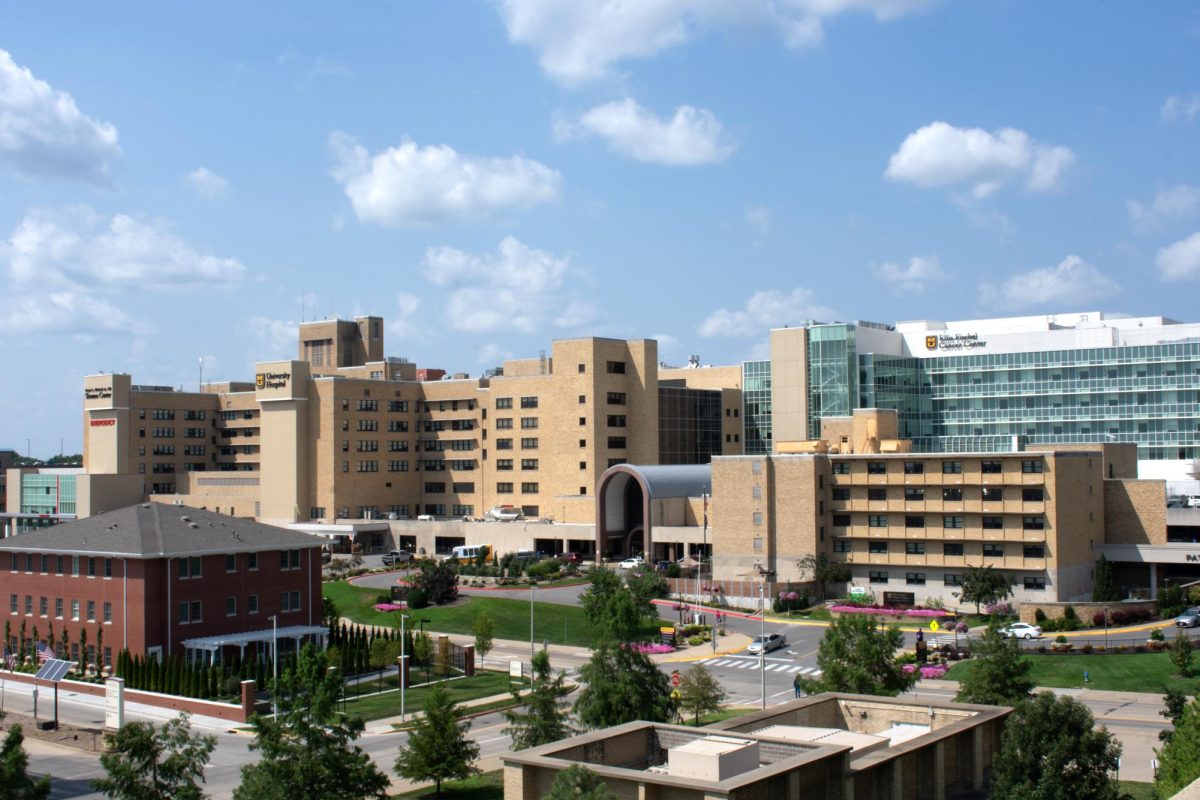Since the University Village apartments were constructed between 1955 and 1956, they have become a hub for graduate students with families looking for affordable housing.
Over the years, the complex has accumulated a large number of structural concerns and generated waves of discontent among residents and students, who are concerned with overall condition of the apartments, according to a report published by the university.
In 2007, MU commissioned Mackey Mitchell Architects to develop the [2008 Graduate & Family Housing Master Plan](http://web.missouri.edu/~hurstn/newsbureaudocs/University%20Village%20documents/2008%20Grad%20Fam%20Master%20Plan.pdf). The firm looked at and recommended plans for all Department of Residential Life apartments — Manor House, Tara Apartments, University Heights and University Village.
Manor House, Tara Apartments and University Heights were recommended to be renovated, at an estimated cost of $19 million total.
University Village was the only one recommended to be demolished.
“There is significant structural damage and deterioration in all buildings (of University Village) except 702 and 703,” the plan stated. “There are other significant problem areas, but the need to replace the structural framing means essentially the entire building needs replacement.”
The plan also listed numerous building shell deficiencies: termite-damaged wood structures, deteriorating metal decks that were deemed a “safety hazard,” damp interiors resulting from inadequate waterproofing and ventilation and outdated furnace and air conditioning units with no central air system, just to list a few.
The plan said buildings 707 and 708 had settled.
“Renovation is not a reasonable alternative,” the plan stated. “The site is in a floodway, so new construction on this site is not desirable based on financial modeling of costs necessary for redevelopment at this site.”
A potential full renovation would have cost more than $15 million, whereas vacating and demolishing the complex would have cost a little more than $1 million.
However, MU spokesman Christian Basi said the university decided not to close down University Village because many graduate students were dependent on it as a housing option.
“It’s low-cost compared to other housing options: It is close to campus and downtown, and the community down there is very tight-knit,” he said.
Graduate Professional Council President Jake Wright added that there are not many other graduate housing options in Columbia.
“Graduate and professional students have a different set of housing needs than undergraduates, and frankly, it’s much more profitable to build an apartment like Brookside or The Den,” Wright said.
To keep University Village open, Residential Life completed nearly 4,500 work orders — 2,110 related to building maintenance, 153 electrical issues, 244 heating, ventilating and air conditioning, and 669 plumbing — since Jan. 1, 2009, which totaled more than $1 million in repairs.
Buildings 708 and 705 were shut down in 2006 and 2011, respectively, for multiple reasons.
“We shut (building 708) down for safety reasons,” Basi said. “Building 705 was shut down for a multitude of reasons, like termite problems, roof issues and utility problems. It was too much for us to fix, so we shut it down.”
After the recent balcony collapse of building 707, the university hired the Trabue, Hansen & Hinshaw Inc. engineering firm to inspect the facility and other university-owned and leased buildings.
The firm’s report released last week stated there was evidence of continued deterioration of the building’s walkway support beams, metal decks and concrete slabs. The report links the cause of the collapse to the concrete slabs.
“We are confident that the collapse was a result of a concrete shear failure along the outer edge,” the report stated. “It is likely that water and chlorides, and expansion from freeze-thaw action, combined to deteriorate the concrete to the point where its shear strength could no longer support even only the self-weight of the walkway.”
After this information was made public, sophomore Garrett Poorman [started a petition](http://www.change.org/petitions/university-of-missouri-demolish-or-fully-renovate-university-village-apartments) March 7 urging the university to either fully renovate or demolish the complex.
“As someone who pays tuition to the university, and someone who paid into the residential fund pool, it just upset me to see how deteriorated the buildings got and how Residential Life is endangering my fellow students at Mizzou,” Poorman said. “I saw it as a social injustice, and I decided to act on it.”
Former graduate student Claire Schmidt also passed around a [change.org petition](http://www.change.org/petitions/members-of-university-of-missouri-administration-we-urge-you-to-ensure-that-the-student-parent-center-at-university-of-missouri-continues-to-exist-and-is-moved-to-a-safe-accessible-on-campus-location), started by psychology doctoral student Kimberly Bodner, that focused on moving University Village’s Student Parent Center daycare.
Schmidt and Naomi Clark, a English doctoral student who has two children in the Student Parent Center, had previously contacted and met with university officials in 2012 about concerns with unsafe conditions at the center.
“We met personally with all of those administrators to talk about safety and lack of communication at the Student Parent Center last year,” Schmidt said. “At that time, we were concerned about if Mizzou is committed to finding a safe space for the Student Parent Center for a long-term student day care. We met with them, and the answer was, we aren’t going to talk about the big picture.”
When Schmidt heard of the Feb. 22 collapse, she said she was appalled.
“We were incredibly upset to know how very familiar Mizzou was with the danger our children were in, and (it) still continued to take our money in day care and allowed us to put our children in danger,” she said.
Basi said taking care of issues with University Village is still a priority for the university.
But the staggering number of other projects on MU’s to-do list, however, might give the university difficulty in consolidating any potential renovation costs.
“We have more than $500 million in deferred maintenance projects across campus,” Basi said. “Although Residential Life is a part of that, if we did (transfer funds to) Residential Life, we would shortchange other areas.”
At this time, at the top of the deferred maintenance list is Lafferre Hall, which [scored a 0.91 on the Facilities Conditions Needs Index](https://www.themaneater.com/stories/2014/1/31/board-curators-discusses-renovations-facilities-se/), which means 91 percent of the building’s systems need to be replaced. Other academic buildings in need of renovation include McKee Gymnasium, Waters, Mumford and Stewart halls, Basi said.
Regarding why University Village was kept open, Basi said the complex and its low costs remain popular with students. Thus, MU responded to the demand.
“That complex is very popular with many of the married and graduate students for several reasons,” Basi said. “Because we have had a demand for that kind of housing, we were doing everything we can to keep it open and maintain it as a viable housing option for our students.”
However, Poorman said he still has general safety concerns for people within the complex.
“Unfortunately the students that live at University Village are ones who are full-time students, and then they go to a job, and they have to put their kids to bed, so they don’t really have time to spend on advocacy efforts like this,” he said. “That’s where it is other students’ jobs to pick up the slack.”
Poorman said he was also upset by the university’s labeling of University Village facilities as “structurally sound.”
“‘Structurally sound’ doesn’t mean that buildings are in good condition,” he said. “It doesn’t mean that they couldn’t be better, and it doesn’t mean students are 100 percent safe.”
Poorman’s petition had 105 supporters as of Tuesday night.
“The petition is about having a document to take to administration and say this is an issue that students really care about,” Poorman said. “(We want to show) it’s not an issue you can easily brush aside.”
Bodner’s petition had 592 signatures as of Tuesday night.













